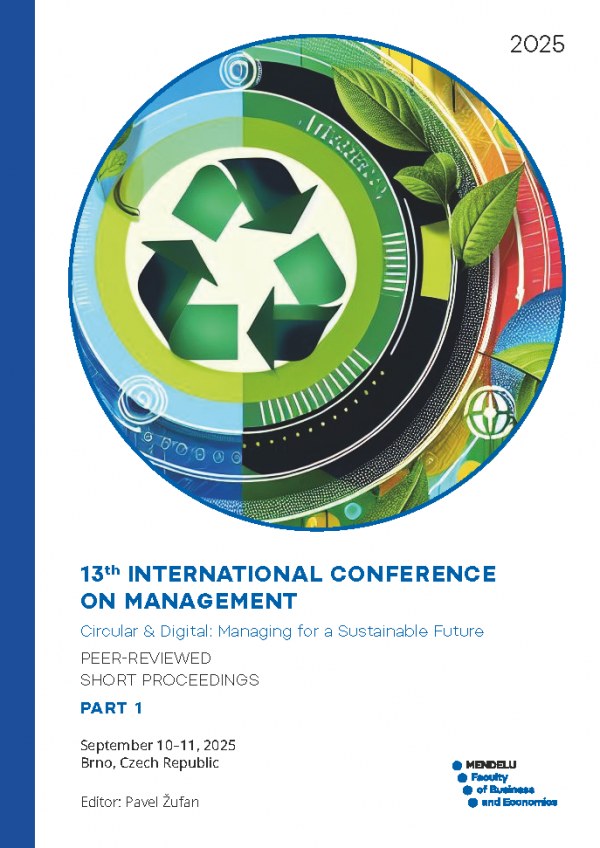
DOI: 10.11118/978-80-7701-042-9-0039
THE LABOUR MARKET ADAPTABILITY AND SITUATION OF “NEW TOURISM” AFTER THE PANDEMIC
- Tamas Glazer1, Csaba Bálint Illés1
- 1 John von Neumann University, Doctoral School of Management and Business Administration, Budapest, Hungary
The research confirms that digital transformation, particularly AI applications, has the potential to enhance labour market adaptability in the tourism sector [9]. Companies that embrace technological innovations demonstrate greater resilience and competitiveness in the post-pandemic landscape.[10] However, successful implementation requires targeted workforce training and supportive policies to bridge the digital skills gap. Future research should explore long-term impacts and best practices for integrating digital solutions into tourism labour management.
Keywords: labor market, digitalization, hotel industry, COVID-19, new tourism
pages: 39-40, online: 2025
References
- Government Decree 468/2022 (XI.21.).: On measures to support the tourism and hospitality sector [cit. 2024-06-06]. https://njt.hu/jogszabaly/2022-468-2022
- State Audit Office of Hungary. 2021. Elemzés - A turizmus helyzete - a járvány előtt és alatt [Analysis - The state of tourism - before and during the epidemic]. Állami Számvevőszék (EL-3039-007/2021). [Accessed: 2024-12-03]. https://www.asz.hu/dokumentumok/turizmus_jarvany20210325.pdf
- Németh, T., Dunay, A., Hegedűs, M., Pataki, L. 2023. The impact of the COVID-19 pandemic on the capital structure, liquidity and profitability of SMEs operating in the Hungarian hospitality and it services sectors. In: Langhamrová, J., Vrabcová, J. (eds.). RELIK 2023 Conference proceedings - Reproduction of Human Capital - mutual links and connections. Prague: University of Economics and Business, pp. 271-281.
 Go to original source...
Go to original source... - Végi, S., Csapó, J., Törőcsik, M. 2020. Az új koronavírus (COVID-19) megjelenésének hatása a magyar lakosság turisztikai fogyasztói szokásaira - egy online felmérés elsődleges eredményei. In: Ercsey, I. (ed.). Marketing a digitalizáció korában: Az Egyesület a Marketing Oktatásért és Kutatásért XXVI. Győr: Országos konferenciájának előadásai, Széchenyi István Egyetem, pp. 357-368.
- Magyar Turisztikai Ügynökség. 2023. Nemzeti Turizmusfejlesztési Stratégia 2030 - Turizmus 2.0 kiegészítés. Budapest. [Accessed: 2024-04-30]. https://mtu.gov.hu/dokumentumok/NTS2030_Turizmus2.0Strategia_kiegeszites.pdf?v=0.159
- Hadjielias, E., Christofi, M., Christou, P., Hadjielia Drotarova, M. 2022. Digitalization, agility, and customer value in tourism. Technological Forecasting and Social Change. 175, 121334. https://doi.org/10.1016/j.techfore.2021.121334
 Go to original source...
Go to original source... - Talwar, S., Kaur, P., Nunkoo, R., Dhir, A. 2023. Digitalization and sustainability: Virtual reality tourism in a post pandemic world. Journal of Sustainable Tourism. 31(11), 2564-2591. https://doi.org/10.1080/09669582.2022.2029870
 Go to original source...
Go to original source... - [Thees, H., Störmann, E., Thiele , F., Olbrich, N. 2021. Shaping digitalization among German tourism service providers: Processes and implications. Journal of Tourism, Heritage & Services Marketing. 7(2), 3-15. https://doi.org/10.5281/zenodo.5548393
 Go to original source...
Go to original source... - Csapó, J., Csóka, L., Gonda, T., Végi, Sz. 2023. A digitalizációhoz köthető recens hazai turisztikai fogyasztói szokások elemzése. Marketing & Menedzsment. 57(3), 68-78. https://doi.org/10.15170/MM.2023.57.03.07
 Go to original source...
Go to original source... - Csordás, T., Irimiás, A., Kiss, K. 2022. Digitalizáció-vezérelt innovációk a turizmusban - fókuszban a fogyasztói magatartás. Turizmus Bulletin. 22(4), 16-25. https://doi.org/10.14267/TURBULL.2022v22n4
 Go to original source...
Go to original source...


